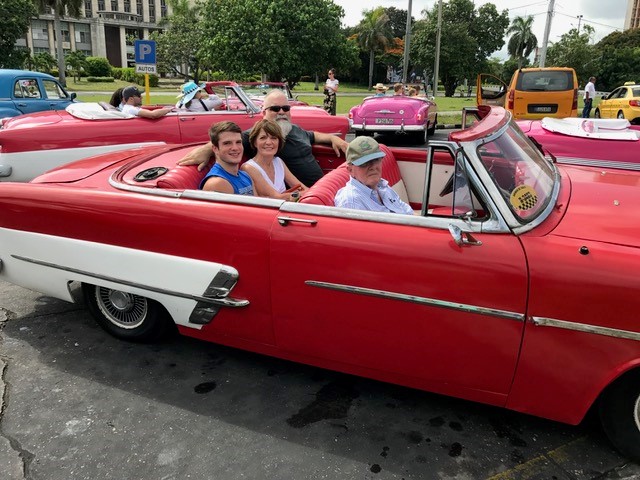As the characters in Nelson DeMille’s exciting new novel tour Cuba, they visit a farm near Havana. “A nice older gentleman explained, in Spanish, all the strides they were making in organic agriculture,” says the narrator.
One of his companions offers her own take: “All the farms in Cuba are organic because they can’t afford chemical fertilizer.” Then she explains a little more: “Most of this food goes directly to the Communist Party.”
It’s just a brief scene in “The Cuban Affair,” which hit #1 on the New York Times bestseller list over the weekend.
Yet it spoke so much truth about a country and its plight—as well as the remarkable opportunity for Americans who are willing to trade with this island nation and help it grow more food.
I visited Cuba for the first time this summer. I was on a Caribbean cruise ship with my family and we stopped in Havana for a day.
This hardly makes me an expert on Cuba, but as a farmer and rancher in the United States, I know a few things about food production—and I came away with several clear impressions.
The first one arrived before we even disembarked. An on-board briefing reminded us that Cuba is a Communist country run by dictators, and so American tourists must behave with caution. If we were caught spray-painting “Cuba Libre!” or “Viva Capitalism!” on a wall, it probably wouldn’t end well.
The presenter also warned us about a more mundane threat: Don’t drink the water. More than half a century after Fidel Castro’s Communist revolution, the island nation is still poor and primitive.
 I had expected this injunction. His next point, however, surprised me: “If you want a great Cuban sandwich, go to Miami.”
I had expected this injunction. His next point, however, surprised me: “If you want a great Cuban sandwich, go to Miami.”
I had assumed that world-famous Cuban sandwiches—ham and cheese with pickles and mustard—would be widely available in Havana, perhaps from street vendors who cater to day trippers.
Yet they’re not, partly because the government crushes entrepreneurship but also, I soon discovered, because Cuban agriculture fails to deliver the basics.
We saw this firsthand almost as soon as we had left the ship. My grandson—a big high-school football player—wanted something to eat. So we went to a little café.
I thought that although we might not enjoy Cuban sandwiches or coffee (don’t drink the water!), at least we’d get a taste of authentic Cuban cuisine.
From the menu, he tried to order eggs with meat: bacon, sausage, and so on.
With each attempt, the waitress replied, “We’re out of that right now” or “We don’t have that anymore.”
The problem was the meat: They didn’t have any, and so he settled for a cheese omelet.
When I inquired further—had they not yet received their morning delivery? —I learned that Havana suffered from ongoing shortages. The Cubans can’t supply the food that their economy demands.
I suspect Nelson DeMille is right: The members of the Communist Party eat well, taking the best farm products, while the ordinary people of Cuba make do with beans and rice.
 It doesn’t have to be this way. The Cuban people are creative, as I saw after breakfast. We hired a guide who drove us around Havana in a red-and-white 1955 Chevy convertible—a beautiful car that runs on mechanical ingenuity. Cubans can’t get new auto parts, but they somehow make classic cars run.
It doesn’t have to be this way. The Cuban people are creative, as I saw after breakfast. We hired a guide who drove us around Havana in a red-and-white 1955 Chevy convertible—a beautiful car that runs on mechanical ingenuity. Cubans can’t get new auto parts, but they somehow make classic cars run.
Our car in fact sputtered to a stop three times, but our good-natured driver knew just what to do: He leaped from his seat, lifted the hood, and adjusted a few cables. Then the car started up again.
As we roamed, I could sense Cuba’s potential. The climate was perfect for growing crops and, from what I could tell, the soil looked fertile. With proper cultivation—including help from the kinds of big machinery that American companies are so good at making—Cuban agriculture would boom.
A few farmers might remain organic by choice, as opposed to necessity. Many, however, would take up the modern practices that have made food so abundant.
At first, they’d produce enough for their own people to eat well. Later, they’d export to consumers everywhere.
A lot must change, of course, starting with Cuba’s unelected government. The United States, however, should do what it can to nudge Cuba toward greater freedom in politics and economics—and also in farming.


